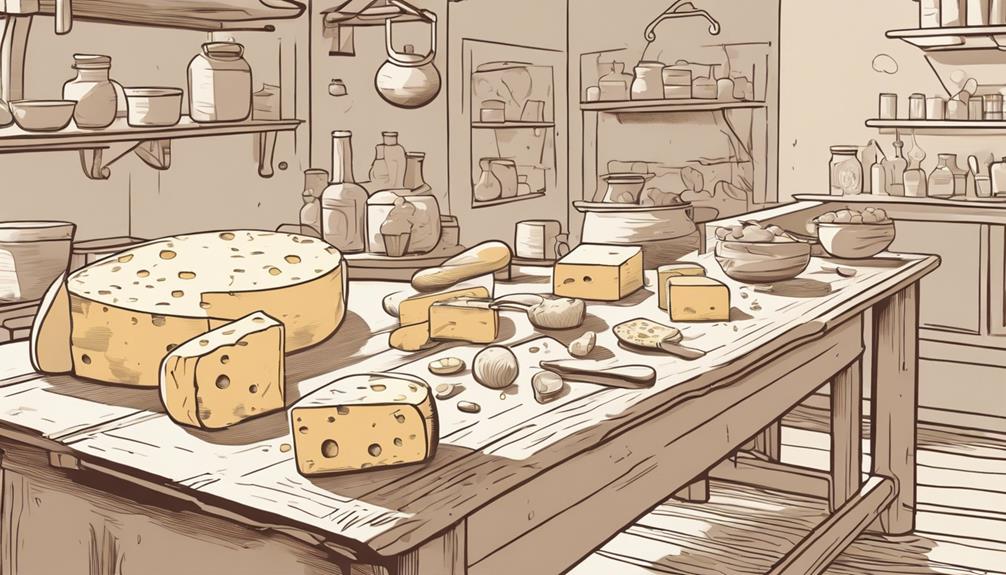See All: Cheese Making
Watch How To Do This Here…
YES! You can make cheese at home. Take our FREE 4-Part video training series to simplify cheesemaking for everyone. No waste. No overwhelm. No missing steps. You can make delicious, healthy cheese, even if you only have access to grocery store milk and regular kitchen equipment…
Click Here To Watch Step By Step Now
“I’ve been making cheese for a few years now, but recently I’ve noticed that some batches are developing an off-flavor that wasn’t there before. Could you explain what might be causing this? I’ve checked the basics, like temperature and storage conditions, but the problem persists. Any suggestions?” Thanks, Laura, Perth, Australia.
What Causes Cheese To Develop An Off-Flavor?
Hey Laura! Cheese-making is an art that requires careful attention to detail, and even the most experienced cheese makers sometimes run into unexpected issues. Off-flavors can indeed be frustrating, but don’t worry—there are numerous reasons why this might be happening. Let’s look into some common causes and how you might address them in your future batches.
Bacterial Contamination
Bacterial contamination is a leading cause of off-flavors in cheese. While beneficial bacteria are essential for cheese fermentation and aging, harmful bacteria can spoil the entire batch. Sources of bacterial contamination can be varied:
- Raw Milk: If you’re using raw milk, there’s always a risk of contamination. Make sure your source is reliable and the milk is properly pasteurized if required.
- Sanitation: Cleanliness is paramount. Ensure all equipment and surfaces are sterilized before use.
- Cross-Contamination: Handling other food products while making cheese can introduce unwanted bacteria. Use designated tools and spaces just for cheese-making.
Improper Fermentation
Fermentation is a delicate process, and getting it right is crucial for good cheese flavor. Off-flavors can result from issues such as:
- Temperature Control: If the fermentation temperature is too high or too low, unwanted bacteria can proliferate. Aim for the specific range recommended for your cheese type.
- Incorrect Starter Cultures: Using the wrong starter cultures can lead to undesirable fermentation byproducts. Always use cultures suited to the cheese you’re making.
Ripening Conditions
The conditions under which cheese ripens can also significantly affect flavor. Ensuring the right balance of humidity, temperature, and aging time is essential:
- Humidity: Too much or too little humidity can create an environment for undesirable bacteria or mold. Aim for the optimal humidity level recommended for your cheese type.
- Temperature: Fluctuations in temperature can stress the cheese and lead to off-flavors. Consistent temperatures are key.
- Aging Time: Aging cheese for too long or not long enough can also result in off-flavors. Stick to the recommended aging period for the best results.
Milk Quality
The quality of the milk you use tremendously impacts the final product. Factors to consider include:
- Feed of the Animals: What cows, goats, or sheep eat can influence the milk’s flavor. Make sure your milk supply comes from animals fed on high-quality, consistent diets.
- Milk Freshness: Older milk can develop off-flavors, so using fresh milk is always a good practice.
Improper Handling
Spoiling can also occur due to improper handling, even after the cheese has been made. Always make sure to:
- Store Properly: Use proper storage conditions regarding temperature and humidity.
- Avoid Contamination: Handle cheese with clean tools and hands to reduce the risk of contamination.
Food Enzymes and Additives
Incorporating enzymes and additives incorrectly can create adverse flavors. Pay attention to:
- Rennet: Ensure you’re using the correct type and amount of rennet for the cheese you’re making.
- Calcium Chloride: Sometimes added to improve curd formation, incorrect usage can affect flavor. Always measure accurately.
Package Issues
Even the packaging material can affect the cheese’s taste:
- Choose Non-reactive Packaging: Packaging materials should be non-reactive and suitable for cheese storage.
- Avoid Reusing Packaging: Using old packaging can introduce unwanted flavors.
Environmental Factors
The environment in which you’re making and storing your cheese can also play a significant role:
- Air Quality: Ensure your cheese-making area is free from strong odors or contaminants that could seep into the cheese.
- Seasonal Changes: Seasonal changes can affect the ambient temperature and humidity, which in turn can impact your cheese. Be prepared to make adjustments as needed.
Mold Contamination
Sometimes mold is good, but sometimes it isn’t. Unwanted mold can spoil the flavor:
- Clean Environment: Ensure your working environment is free from unwanted spores. Regular cleaning and maintenance can help prevent contamination.
- Proper Airflow: Ensure there’s good airflow where you’re aging your cheeses to prevent unwanted mold growth.
Final Thoughts…
Thanks for your question, Laura. Cheese-making is a journey of continual learning. Hope these tips help you identify the cause of the off-flavors in your cheeses. Remember, cleanliness, proper fermentation, and careful monitoring of ripening conditions are key. Happy cheese-making!
Return To: Cheese Making
Free Step By Step Cheese Making Videos…
YES! You can make cheese at home. Take our FREE 4-Part video training series to simplify cheesemaking for everyone. No waste. No overwhelm. No missing steps. You can make delicious, healthy cheese, even if you only have access to grocery store milk and regular kitchen equipment…

